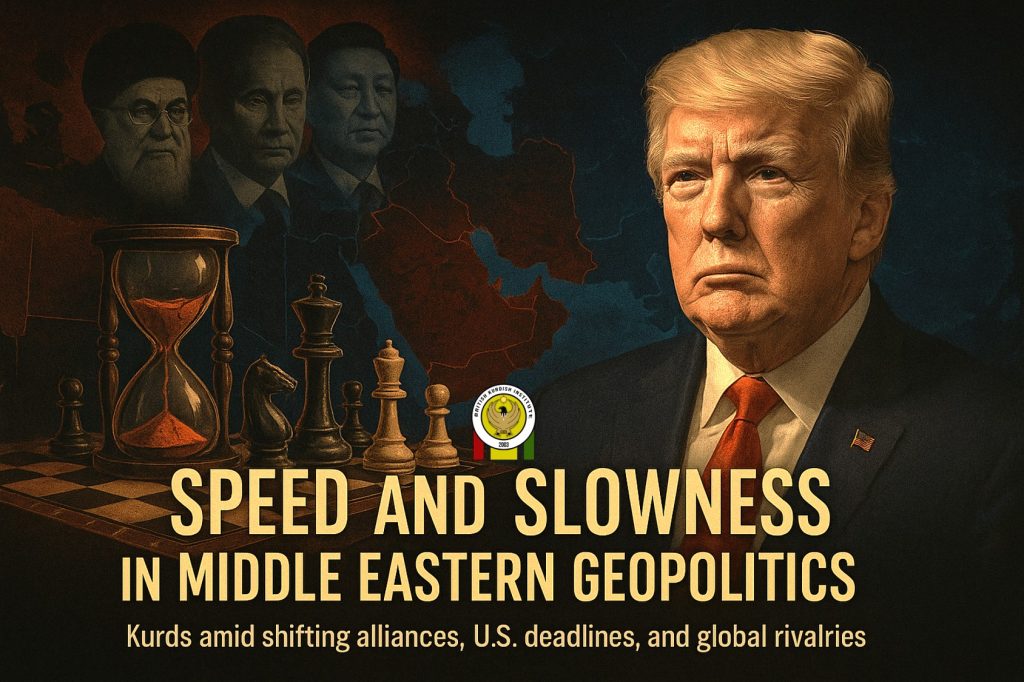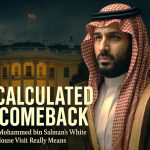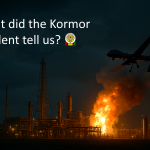In today’s Middle East, timing has become a weapon of strategy. While some leaders rush to force agreements, others deliberately slow down political processes, shaping alliances and outcomes. For the Kurds, caught in the middle of these fast and slow rhythms, every shift in timing carries profound consequences.
Trump’s Two-Month Deadline and the Iran Question
Former U.S. President Donald Trump set a dramatic two-month deadline for a deal with Iran—warning that without one, confrontation would follow. Yet the complexity of Iran’s nuclear issue, unresolved for more than two decades, raises doubts about whether such quick resolutions are realistic.
Trump’s urgency reflects a broader fear: that the United States could fall behind China in global influence. Meanwhile, Russia and China play by opposite rules. Vladimir Putin has shown no rush to end the war in Ukraine, while Xi Jinping embraces a long-term strategy, advancing cautiously but steadily.
China’s Slow but Steady Rise
China is investing heavily in military strength, technology, and space. Its third aircraft carrier, Fujian (CV-18), began sea trials in 2024, and Beijing has developed the DF-27 hypersonic missile capable of reaching U.S. territory. By 2026, China plans to direct nearly a quarter of its GDP into high-tech sectors like AI, quantum science, and semiconductors.
Trump’s alarm is not unfounded. China now dominates rare earth minerals, global supply chains, and is expanding its reach into the Middle East through energy deals. By strengthening U.S. ties with Saudi Arabia, Gulf states, and Israel, Trump seeks to curb Beijing’s growing leverage—moves that could directly impact Kurdish politics.
The Kurdish Chessboard in Syria and Iraq
A rapid U.S. withdrawal from Syria could pressure Kurdish forces into agreements with Damascus, reminiscent of past U.S.-brokered deals. Trump also favors accelerating talks between Turkey and the PKK, while boosting Kurdish influence in Iraq as Baghdad heads toward elections in late 2025.
For the Kurds, these shifts mean both opportunity and risk. If Iran and the U.S. strike a deal, it could open doors for Kurdish autonomy in Eastern Kurdistan and the Kurdistan Region of Iraq. But if talks collapse into open conflict, Kurdish regions could become battlegrounds. The Zagros Mountains, home to key Kurdish cities, would likely turn into critical security zones under heavy Iranian control.
Syria’s Fragile Reconstruction and the Kurdish Factor
In Syria, interim President Ahmed al-Sharaa faces the monumental task of rebuilding a war-torn state while balancing Kurdish demands. Negotiations with the Kurdish-led SDF highlight disputes over oil fields, border crossings, and recognition of Kurdish-language education. Though both sides reached a tentative agreement, tensions remain.
Turkey and Israel are also shaping Syria’s future. Ankara pushes to block Kurdish autonomy, while Israel views Syria as a strategic front to contain Iran. For Turkey, reconstruction offers not only security benefits but also major economic opportunities for its powerful construction sector.
The PKK, Turkey, and Regional Power Plays
The question of PKK disarmament continues to haunt the region. Turkey demands quick action, hoping to use the issue as a political victory. Yet the PKK resists rushing into dissolution, prolonging the conflict. For Iran, the PKK has served as a buffer in its border regions, complicating any potential peace deal.
This makes the Kurdish question not only a Turkish or Syrian issue but also a wider regional one. Every decision—whether delayed or accelerated—reshapes power balances across the Middle East.
The Iraqi Kurdish Divide and Upcoming Elections
More than six months after elections, the Kurdistan Regional Government (KRG) remains unformed. With new Iraqi elections less than seven months away, alliances will be critical. If the Kurdistan Democratic Party (KDP) and the Patriotic Union of Kurdistan (PUK) fail to cooperate, Baghdad could face renewed instability.
Conclusion: Timing as a Geopolitical Weapon
In today’s Middle East, speed and slowness are not just markers of time—they are strategic tools. For the Kurds, geography ensures they remain at the center of these struggles. Their future depends on mastering the rhythm of politics: knowing when to move quickly, and when to wait.









